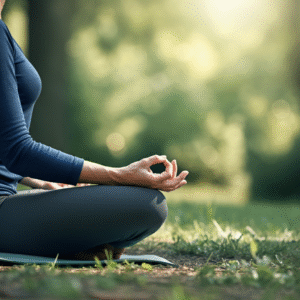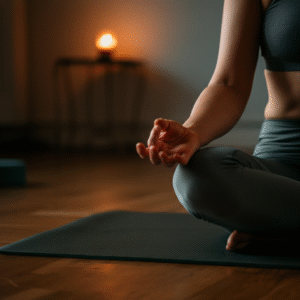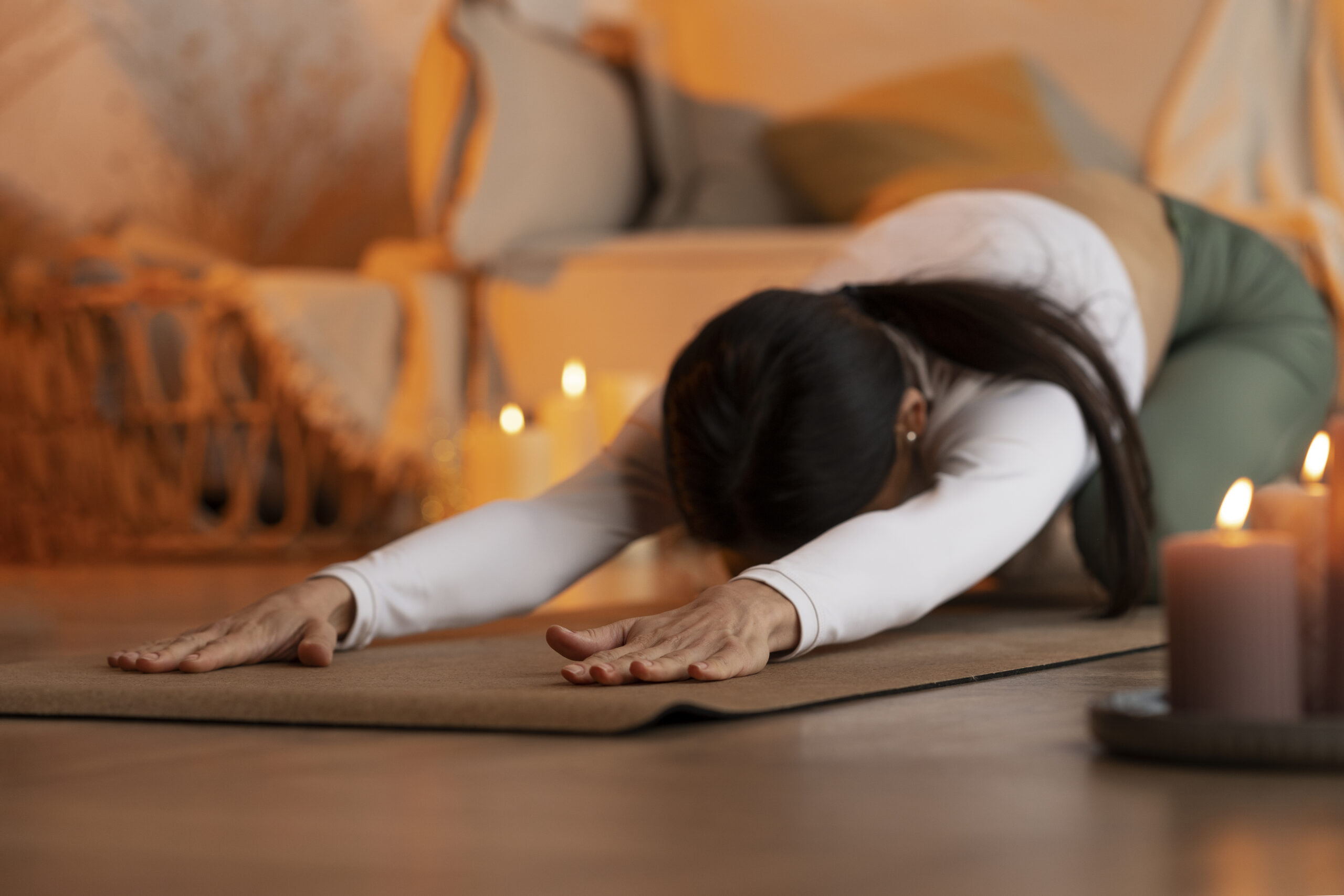Are you feeling overwhelmed? It’s not your only concern. Our lives can often cause us to be afflicted with stress and anxiety, which can be detrimental to both our physical and mental well-being. The ”benefits of meditation for anxiety relief” are well-documented, making it a powerful and simple method of finding calm. It’s good to know that meditation can be an accessible practice for anyone, anywhere. If you can commit just one or two minutes every day to practicing mindfulness, you will be able to change the way you deal with anxiety.
If you’re interested in learning more about how meditation is able to work magic or are unsure if it’s something worth a try the practice, this blog will walk you through its incredible benefits as well as practical ways to begin. Take a seat, and let’s take a look around the tranquil realm of mindfulness.
What Is Meditation?
Before we discuss its advantages, let’s look at the definition of meditation. Meditation is a way of life in which you pay attention to your mind usually with the aim to achieve a calm and a relaxed state. The goal is not “turning off” your thoughts but rather observing and acknowledging your thoughts without judgement.

Meditation can take a variety of forms, including meditation on mindfulness and deep breathing exercises as well as guided visualisation. Whatever method you decide to use the goal is to calm your mind, re-connect with your body, and develop the feeling of being calm.
Now, as we dive to the benefits that meditation can bring, you’ll be able to see why it is frequently regarded as to be a lifesaver for people suffering with anxiety.
How Meditation Reduces Anxiety Naturally
Anxiety can be described as an uncontrollable surge of emotions and thoughts. That’s where meditation comes in, assisting the mind to achieve calm and clarity. Here’s how:
1. Improves Emotional Regulation
One of the greatest advantages of mindfulness is its capacity to improve emotional regulation. By practicing mindfulness, you can train your brain to stop instead of responding immediately to triggers. This helps you respond to stressful situations with more ease and reduce the severity of anxiety that builds up over time. In other words the next time you are faced with a stressful situation, meditation may aid you in approaching the situation with more concentration and calm.
2. Lowers Stress Hormones
The stress and anxious state are related to cortisol which is the body’s principal stress hormone. Regular meditation has been proven to reduce cortisol levels, which can lead to peace of mind. When cortisol levels decrease it causes anxiety-related symptoms like fast heartbeat, restlessness and tension naturally decrease.
3. Promotes Mindfulness and Presence
A lot of anxiety stems from worry about the future, or obsessing about the past. Meditation can help you remain present, to focus on the present. In this way you can break free from the tangle of thoughts that cause anxiety, creating the space to be calm and grounded.
A simple mindfulness breathing exercise can be described as take a deep breath for four times in a row, then hold it for another four and then slowly exhale for six. Repeat this several times. By three breaths, you’ll probably be feeling more relaxed already.
4. Boosts Positive Neural Changes
Have you ever thought about how meditation could transform your brain? Research has shown that regular meditation can improve grey matter in regions related to self-awareness and emotion regulation and solving problems. These neural changes increase your resilience to anxiety. Consider meditation as a form of exercise to your mind. It helps strengthen those “muscles” that keep you at ease as well as in charge.
Practical Meditation Tips for Getting Started
You might be thinking, “Do I need special skills or hours of free time?” Absolutely not. The practice of meditation is accessible to anyone regardless of how busy or unexperienced you are. Here are some suggestions to incorporate meditation into your routine:

Start Small
Begin by taking just five minutes every day. When you are at ease, increase the amount of time. Even short sessions could result in substantial modifications.
Create a Quiet Space
Find a quiet, clutter-free area where you will not be distracted. The space you have chosen can help you connect it to calmness and peace.
Follow Guided Meditations
If the thought of sitting alone feels uncomfortable, try guided meditation programs like Calm Insight Timer or Headspace. These apps offer step-by-step guidance specifically designed to relax and provide anxiety relief.
Consistency Is Key
Although meditating for a few minutes can help to improve your concentration, it is the consistency that allows you to reap the benefits over time. Make it a habit to practice every day even if it’s only one or two minutes initially.
Be Kind to Yourself
It’s normal. Instead of criticizing yourself simply bring your attention to the present. It’s not about perfection, it’s about growth.
Real-Life Benefits You’ll Notice
If you incorporate meditation into your daily routine and you’ll begin to notice the tangible benefits that meditation can bring over time:
- Improved Sleep
Anxiety can disrupt sleeping, making you feel tired. Meditation can help you calm your anxiety-related thoughts which keep you up and can lead to more restful sleep.
- Heightened Focus
When you’re less overwhelmed your ability to focus increases. This clarity boosts your decision-making capacity and productivity.
- Better Physical Health
Meditation can reduce stress levels, and it also helps alleviate physical symptoms such as headaches, and tension in muscles, allowing you to be healthier in general.
- Greater Sense of Control
One of the greatest effects of meditation that it allows you to regain control over your thoughts. Being more calm and grounded can help you react in a controlled manner (rather instead of reacting in a flash) to the challenges of life.

It’s not just a quick fix. It’s a lifestyle modification which can provide long-lasting benefits to stress and general well-being. As with any new habit it requires time and effort to master. However, the benefits are enough to be worth it. From relaxing a restless mind to enhancing the quality of sleep and concentration Meditation can be a treat to yourself, one which makes you feel more at ease at peace, calm and at ease.
Why not give it a go? Start with just five minutes today. Your future self, calmer and more peaceful will be grateful to you.



